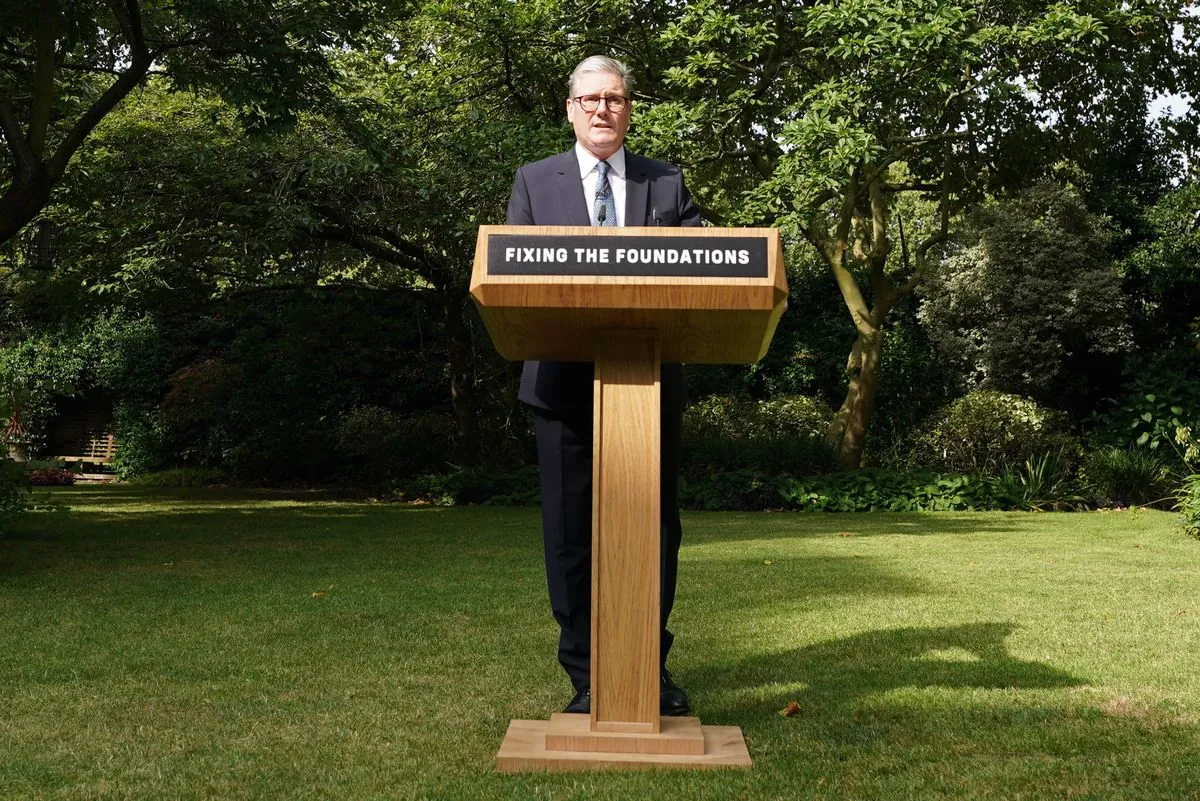Starmer's Humorless Lecture Marks End of Bank Holiday Cheer
Sir Keir Starmer's stern address signals a shift from holiday mood to political reality. Labour's leader faces criticism over cronyism allegations, highlighting challenges in maintaining his image of moral superiority.

As the bank holiday cheer fades, Sir Keir Starmer delivers a somber address, marking a stark contrast to the recent festive atmosphere. The Labour leader's stern demeanor serves as a reminder of the political realities that await the British public.
Starmer's speech, delivered in the Downing Street rose garden, aimed to emphasize his government's commitment to transparency and ethical conduct. However, his efforts were overshadowed by recent allegations of cronyism within the Labour Party. The controversy surrounding Labour donor Lord Alli's acquisition of a Downing Street security pass has raised eyebrows and prompted questions about the new administration's integrity.
"This garden and this building are now back in your service."
The Prime Minister's attempt to distance himself from past controversies by referencing the garden's previous use for "lockdown parties" inadvertently highlighted the challenges his government faces in maintaining a squeaky-clean image. Starmer's claim that the premises are now "back in your service" struck some observers as both simplistic and grandiose.
Critics argue that Starmer's response to the allegations demonstrates a lack of self-awareness and an inability to handle criticism effectively. His dismissal of questions from reporters as partisan attacks has led some to question his commitment to accountability.

The Labour leader's predicament is further complicated by his previous emphasis on moral superiority. As the realities of governance set in, maintaining this lofty image becomes increasingly difficult. Starmer's apparent struggle to reconcile his ideals with the practicalities of political leadership has not gone unnoticed by the public or the media.
This situation presents a golden opportunity for satirists and comedians. While concerns about potential restrictions on satire have been raised, the current political landscape offers ample material for humorists. Starmer's perceived lack of humor and tendency towards self-righteousness provide fertile ground for mockery, much like his predecessors in the Conservative Party.
As the British public continues to familiarize itself with Starmer and his Cabinet, the Prime Minister's character traits are coming under increasing scrutiny. His reaction to criticism and apparent difficulty in handling lighthearted jabs may prove to be significant factors in shaping public opinion.
The coming months will be crucial for Starmer as he navigates the challenges of leadership while attempting to maintain the moral high ground he has claimed. The British public's tolerance for pomposity and self-righteousness may be tested, potentially impacting the Labour government's popularity and effectiveness.


































